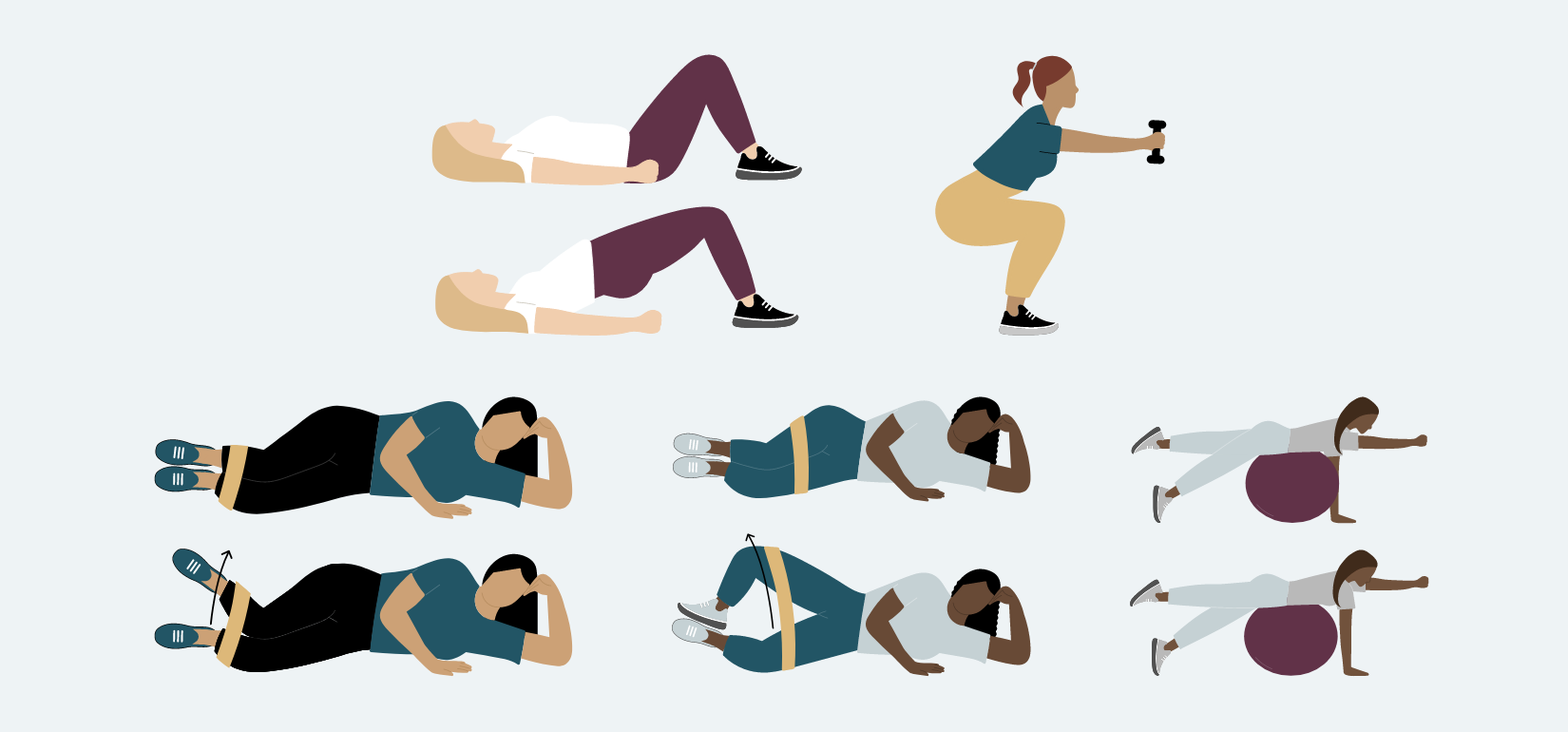Imagine this: You’re rushing to the bathroom, feeling the urgent need to go. You get there, only to realize you can barely squeeze out a small amount. Or, perhaps you experience embarrassing leaks when you sneeze, cough, or exercise. These are just a few examples of bowel control issues that can arise from a weak pelvic floor. While we often focus on bladder control when discussing pelvic floor health, it’s crucial to understand that the muscles supporting your bladder also play a vital role in maintaining bowel function.

Image: viewfloor.co
A weak pelvic floor can wreak havoc on your digestive system, affecting everything from constipation to incontinence. But how exactly does this happen, and what can you do to strengthen your pelvic floor and regain control? Dive into the fascinating world of pelvic floor health and bowel function with us as we explore this complex yet vital aspect of your well-being.
Understanding the Pelvic Floor’s Role
The pelvic floor muscles form a hammock-like structure at the base of your pelvis, supporting your bladder, uterus (in women), rectum, and intestines. These muscles work in concert to prevent involuntary leakage, control bowel movements, and maintain sexual function. Picture them as a team of tiny superheroes safeguarding your internal organs.
However, these superheroes can get tired or weaken over time, leading to a variety of problems. This weakness can stem from various factors, including:
- Pregnancy and childbirth: The strain of pregnancy and delivery can significantly weaken the pelvic floor muscles.
- Age: As we get older, our muscles naturally lose strength and elasticity.
- Chronic constipation: Straining during bowel movements can stress the pelvic floor.
- Obesity: Excess weight can put extra pressure on the pelvic floor, leading to weakness.
- Surgery: Some surgeries, particularly those involving the pelvic area, can affect pelvic floor muscle function.
- Nerve damage: Conditions like diabetes or multiple sclerosis can damage nerves that control the pelvic floor muscles.
The Link Between a Weak Pelvic Floor and Bowel Problems
A weak pelvic floor can directly impact your bowel health, causing a multitude of issues:
- Constipation: Weakened pelvic floor muscles may struggle to adequately support the rectum, resulting in difficulty passing stools.
- Incontinence: This happens when the pelvic floor muscles fail to properly control the sphincter muscles responsible for holding in stool. This can lead to embarrassing leaks during straining, sneezing, or coughing.
- Fecal incontinence: A more serious condition, fecal incontinence involves the involuntary loss of stool. This can be especially challenging and isolating, often leading to shame and anxiety.
Signs You Might Have a Weak Pelvic Floor
Recognizing signs of a weak pelvic floor is crucial for seeking early intervention. If you experience any of the following, it’s worth reaching out to your doctor:
- Frequent constipation
- Straining during bowel movements
- Feeling of incomplete bowel emptying
- Leaks of stool when you cough, sneeze, or laugh
- Difficulty controlling gas
 Image: www.robotec.com.uy
Image: www.robotec.com.uyHow to Strengthen Your Pelvic Floor
The good news is that you can take steps to strengthen your pelvic floor muscles and improve bowel function. Here’s what you can do:
- Pelvic floor exercises: These exercises are known as Kegels, and they involve contracting and relaxing the pelvic floor muscles. To find these muscles, imagine trying to stop the flow of urine midstream or trying to hold in gas.
- Biofeedback: With biofeedback, a therapist uses electronic equipment to help you learn to contract and relax your pelvic floor muscles.
- Yoga and Pilates: These practices can help improve core strength and flexibility, including the pelvic floor muscles.
- Healthy diet and regular exercise: Maintaining a balanced diet and staying active are essential for overall health, including bowel function.
- Lifestyle modifications: Drinking plenty of fluids, eating fiber-rich foods, and avoiding straining during bowel movements can help prevent constipation and further pelvic floor strain.
Expert Advice
For personalized guidance, consult with a healthcare professional. They can assess your specific needs and recommend the most appropriate treatment options. A pelvic floor physical therapist can teach you how to perform Kegel exercises correctly and guide you on a safe and effective exercise program.
Can A Weak Pelvic Floor Cause Bowel Problems
Final Thoughts
A weak pelvic floor can significantly impact bowel function, leading to constipation, incontinence, and other issues affecting your quality of life. Recognizing the signs and taking proactive steps to strengthen your pelvic floor is crucial to regaining control and living a healthier, more fulfilling life.
Remember, you’re not alone. Many people experience pelvic floor weakness, but the good news is that it can be addressed with proper care and support. Take the first step towards a healthier you – reach out to your doctor or a qualified professional. Share your experiences and tips in the comments below to empower others on their journey to pelvic floor strength!





